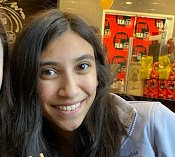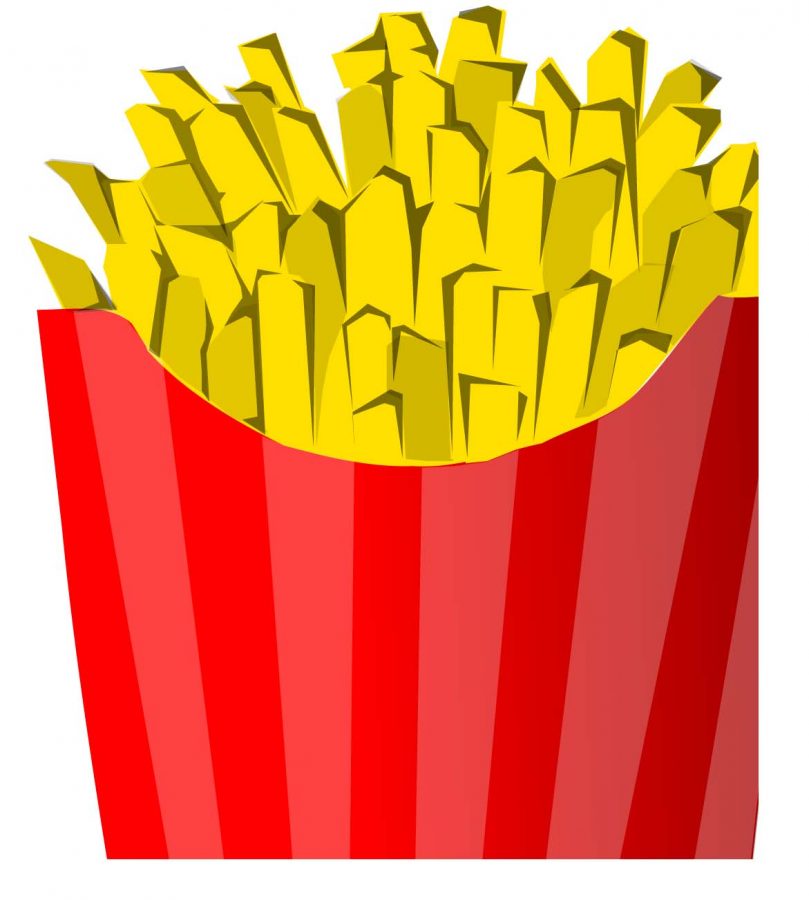Would You Like Some Fries With That…on Mars?
How long can someone survive on Mars by eating only potatoes? In Andy Weir’s science-fiction book The Martian, astronaut Mark Watney does just fine when stranded on the desert planet. However, the data collected on Martian soil by NASA’s Phoenix Mars Lander states otherwise.
To give the gift of mashed potatoes, hash browns, and french fries to future generations, scientists are researching ways to solve this potential problem.
Dr. Edward Guinan (pronounced “GUY-nun”), a professor of astronomy and astrophysics at Villanova University, conducted a pilot project with his astrobiology students that found that vegetables like potatoes, carrots, and onions struggle to grow in Martian soil.
“I gave them the idea that they were in charge of a Mars colony. They had to work with the things they would find on Mars… and people were depending on them for food,” Guinan explained. “That started to motivate them.”
Starting in September, the twenty-two students picked nutritious vegetables like kale, spinach, and, of course, potatoes, to grow in a simulant of Martian soil. However, some opted to deviate from the initial purpose, picking plants like mint, basil, and hops (a grain essential in making beer).
“The variety of plants that the students chose was somewhat different than what NASA has,” Guinan remarked.
The soil analysis by NASA’s Phoenix Mars Lander in 2008 confirmed that Martian soil is not ideal for gardening. By December, however, Guinan’s group was surprised to see that the hops were developing faster than the potatoes.
But why the difference in growth rates?
“When it’s dry, it’s sandy,” Guinan explained. “And when it’s wet, it becomes like a tough clay.” This is especially inhibitory to vegetables like potatoes, carrots, and onions, which grow underground, while it had less of an effect on above-ground-growing hops.
In addition to the inhospitable texture of the soil, NASA’s data showed that, unlike Martian simulant soil, native Martian soil contains perchlorates, toxic molecules found in rocket fuel that can cause thyroid problems in humans. Access to these chemicals is regulated by the government, so they are not available for use in experiments like those conducted by Guinan’s students.
Fortunately, however, scientists are considering potential solutions to both problems. The perchlorates can be removed from the soil in one of two ways: by adding water to leach it out, or by introducing bacteria into the soil to consume the perchlorates.
Moreover, to address the issue of soil consistency, Guinan and his students experimented with different “fillers” that would loosen the soil and allow greater water retention. One successful filler was vermiculite, a mineral often mixed with heavy, sticky Earth soils.
But Guinan didn’t want to burden astronauts with the task of hauling bags of vermiculite across space. He opted for a more feasible solution, substituting vermiculite with cut-up cardboard. One of his students experimented with coffee grinds, deeming them successful when carrots, spinach, and scallions initially sprouted faster in the mixture than in the control group growing in Earthen soil.
“Almost everything grew,” Guinan said, “to various degrees of success.” While potatoes did grow better with the filler, their growth was still not ideal.
The Mars garden project will continue through 2019, and Guinan plans to introduce many improvements to the original pilot project, where “only one student claimed that he could garden, and he forgot to water [the] plants a lot!”
Next year’s experiment will be more specific, with a more consistent watering schedule and lower greenhouse temperatures. Two Villanova astronomy students will perform follow-up experiments. And of course, barley, the other ingredient essential for making beer, will be added to the list of new plants to try.
However, these additions bring us closer to an accomplishment that is much bigger than making a bottle of beer.
“In the next ten years, there could be colonies on Mars,” Guinan conjectured.
It is true that as of now, astronaut Mark Watney, the protagonist of The Martian, could not survive on Mars. Today, his story remains firmly in the realm of pure fiction. Nevertheless, with the new explorations being made by NASA and people like Dr. Guinan, survival on Mars may indeed be more than just a thrilling plot in a sci-fi movie.
Who knows? On a quiet evening in a few more years, sitting around on the red planet while chewing on a kale salad and asking “can I have fries with that?” might be within the stratosphere of our reach.

Anya Jayanthi '21 is thrilled for her fourth year with The Banner! As a co-editor for the S&T section, she hopes to continue exploring the greater...


